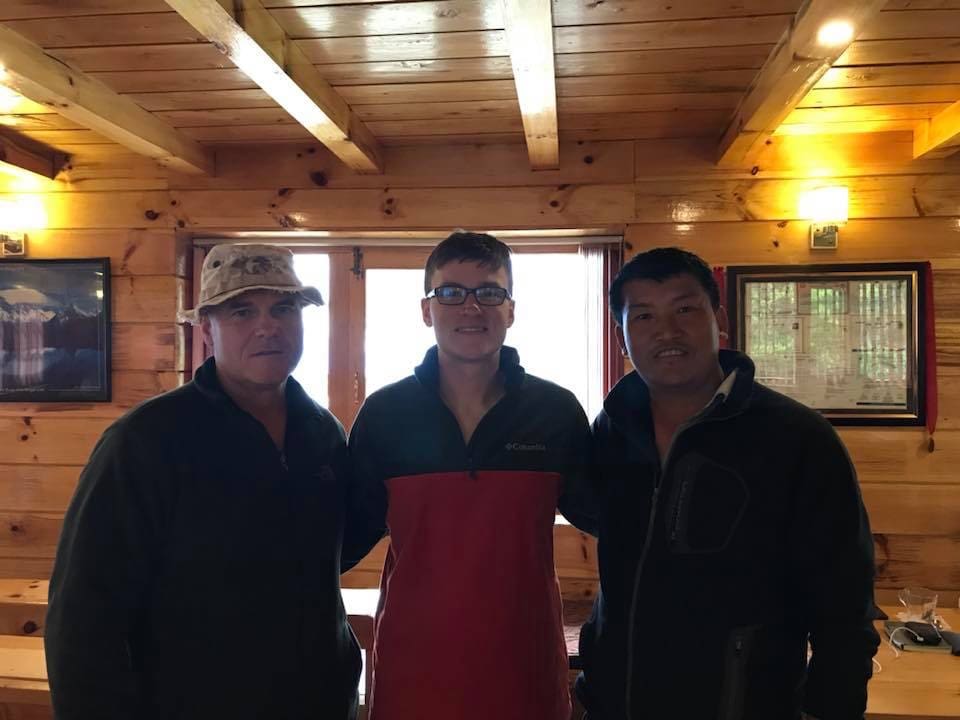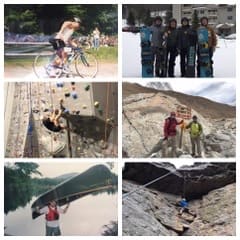Many years ago before I found my place as a Marine, I had lofty dreams of being a professional fighter, a boxer. Big money, fame and a non stop parade of hot girl friends was all part of the fantasy. This was long before MMA was even thought of. So to make any real money as a little guy in professional sports, there was only boxing. How I got started in boxing was kind of a weird story, as I came from a weightlifting background. However, once I got started, I was hooked and dove in head first (more like face first), into the sport. From the very first I loved the workouts, though as you could guess, they were completely different from lifting weights. Right away I stopped lifting completely and quickly shed 10 lbs off my already small frame. I had been doing pretty well in both Olympic and Power lifting, competing in the 148 lb class (usually weighing in around 143-144), so I wasn’t very big to start with, but pound for pound I was very strong. I could easily squat over 300 lbs for reps and Clean and Jerk almost 250. However, boxing has a completely different skill requirement and the workouts to get there didn’t include weights.
My trainer was an old school guy who ended up with a couple of world champions. He had a wealth of boxing knowledge, which also included training and diet. He told me right off the bat that being just under 5’7”, I was always going to be fighting taller people (he was right and in all my bouts, I never fought a shorter guy), so I had to develop a style that would minimize that disadvantage. Think Roberto Duran, not Sugar Ray Leonard. Not that I could actually imitate any champion, far from it, but that was the idea. With that style you need extreme levels of conditioning and punching power (and a good chin), to beat taller, faster boxers. The problem was that when I dropped lifting and lost weight, I felt weak. I was naturally a pretty good puncher, but as some time passed I felt like I was losing strength. I spoke to my trainer about it and thought maybe I should add some weight lifting back into my routine?
He said what I needed was some time to adjust to my new sport and more importantly, an understanding of how this all works. (He was also big on the mental aspect of boxing). He asked me if I thought any weight lifter, bodybuilder, or football player of any size, could punch harder than Rocky Marciano could at 185 lbs? No, I didn’t think so. What about a smaller fighter like Marvin Hagler, at 160 lbs? Probably not, I said. Neither of those two guys ever lifted any weights. So, what is the deal, is it just a natural thing? Well, that’s part of it, as some people can puncher harder, just as some people can run faster, but not all of it. What Marciano and Hagler developed through training is how to transfer their weight into their punch. Think about it this way. If the biggest weight lifter in the world was walking down the street and a 135 lb bag of sand fell out a 3 story window and landed on his head, what would happen? He would be knocked unconscious at least, probably worse. The training that your doing is focused on getting you to do that with your 135 and not just once, but over and over and over. You feel weak now, because your used to a different kind of strength, but as you progress, you’ll get your weight matched correctly to your height and learn how to transfer that weight into your punches. From there you’ll discover a new kind of power, the kind of power you need for boxing. It made sense, so I dropped the idea about going back to weights.
He was right and over the next few months, Though I lost even more weight, I felt much stronger and developed KO power with either hand. I was also very surprised to find out that I could actually hit harder with a left hook, though I was right handed? It was all about using speed and leverage to transfer weight. In any case, looking back, I could hit harder then at 135, than I every could before, or frankly since. The end result was that in all my fights but one, I stopped the other guy. Unfortunately, in that fight (my last) I was stopped by a very tall, very skinny guy whose punches felt like I was being hit by a baseball bat? That fight made me realize that getting punched in the face (a lot), just wasn’t my thing and if you can’t come to terms with that, you will never take boxing to a high level. The bottom line was, while the money and fame of boxing was very attractive, the health risks weren’t worth it to me, so that was that.
So what is the point of this nostalgic sea story? I share this as I got a lot of feedback on last months article when I commented on the current issue of overweight people in our military ranks. Many people pushed back on my take that most of these people are just overweight and the new weight standards are making it worse. What I got specifically was that the body fat measuring methods used aren’t accurate (which I agree with to a certain extent) and that being bigger was actually better anyway. That being heavier isn’t a hindrance, but an advantage. That I don’t agree with at all, not for our military, or 99% of other occupations that require a physical ability and certainly not for the average person.
This is a common misconception that you need to be bigger, to be able to perform better. I’ve heard this a lot over the years trying to help people get into shape and lose weight. Which brings me (finally, I know right) to the point, the conflict between body weight, strength and conditioning. IMO these three things are completely interwoven and cannot be separated, nor do they need to be. However, many people have this baked in idea that they have to be bigger to be stronger, and then train and eat (with lots of supplements, of course), themselves to just being overweight. Gyms and the military are full of these “Joe Bulky” guys. Now if they were bigger in the sense that they were carrying mostly lean useful muscle, that would be one thing, but in the vast majority of people that isn’t the case, they’re just carrying too much weight for their frame and that will end up decreasing their overall physical ability, energy levels and in the longer term, their health.
Yes, it’s simple physics that if you’re heavier, you have a bigger base to push things around, but that by no means proves your in great (or your best) overall condition. For an extreme example, look at NFL offensive lineman. They are huge guys, that are certainly quick and athletic, but most are carrying a lot of extra body fat, some carry huge amounts of extra fat. But in their role on a professional football team, that pure weight is an advantage, as a defensive player has to try and move that weight (or get around it). But the average person is not an NFL offensive lineman, (though many look like it) and doesn’t need that weight. BTW, former NFL offensive lineman sadly have the shortest average lifespan of all positions. No doubt the extra weight they carry for years has an influence on that. I doubt anyone would say that an NFL offensive lineman is an ideal build for our military people, or for any other occupation, except with maybe a bodyguard or bouncer? The goal for the vast majority of us should be to develop a high level of useful fitness, health and energy for our occupation, recreation and our lives in general. To do that we need an all around, balanced type of conditioning and an important part of that is a body weight that fits your frame properly.
To use a motor sport analogy; what you want is a powerful and efficient engine, mounted in a resilient, tough and lightweight frame. Genetically your frame (height) will determine the right size engine required for optimum performance. The point is to fine tune the right sizing of frame and engine. Not to put a powerful (but small) motorcycle engine in a dump truck frame. You may think that dump truck looks big and strong, but in the end it’s slow, burns a lot of fuel and as it’s engine isn’t the right for it’s frame size, it will probably break down a lot and wear out quicker. Your body is the same way. Some people will say to the answer to this problem is just build a bigger engine, more muscle. That works to a certain extent, but the physics of it will take over pretty quickly and you become inefficient on the other side of it. Look at bodybuilders for the perfect example of that. They are an example of an engine that is too big for it’s frame, as they have as much pure muscle packed on their frame as possible, with extremely low levels of body fat. But other than lifting weights can do little else, certainly nothing else at a high level. Not to mention that the diet, workout routine and lifestyle required to get that much muscle is harsh and all encompassing. Plus, it’s an even harder thing to maintain. In any case, it’s infinity better to fine tune the muscle and frame balance and also much easier to maintain.
From long experience and observation I have developed my own system on how to figure out (approximately, as there is a range) what your optimum performance body weight should be for your height, of which I’ll share in a new book I plan to publish next spring. But for now I can say this, it’s a lot lighter than most people would guess, but not extremely so. As the skin and bone build of a elite marathon runners is no where near the ideal either, no more than the NFL offensive man is. The bottom line is that it’s easy to chow down, hit the weight room, bulk up and fool yourself that you’re at your best and for many people that’s good enough. I get that and if that’s your thing have at it. However, if you need, like our military needs (or just desire), great overall physical performance, great long term health and high energy, you need to take a different road to get to a different and IMO, much better place.
Just for one quick real life example. With this article I have included a picture of Lu Xiaojun. Lu is a Chinese Olympic and World Champion Olympic weightlifter and is also a world record holder. IMO Olympic lifting is the best example of dynamic strength, as the Olympic movements require high levels of athletic ability, balance and flexibility as well as extreme strength. Lu is 5’8” inches tall and weighed here at 169 lbs, which puts him 11 lbs under the maximum weight for his height by Marine Corps Standards, (max for 5’8″ is 180 lbs). His weight and height are an almost perfect match for his sport, actually he is statistically a tad on the tall side (by an 1”) for his weight class of 77Kg. In this picture he is clean and jerking over 450 lbs! Notice he isn’t wearing a lifting belt, no knee wraps, no “lifting suit” like you see in power lifting. I would estimate that 99.9% of the world’s population can’t lift 450 lbs off the ground, let along take it from the ground, to overhead. Yes, he is a world champion, with the rarest of genetics and years of hard training, but the point is that he represents how much dynamic power that can generated from a relatively small, lean person. I’m not saying that his weight/height match is perfect for overall fitness, using my formula he is about 9 lbs over the optimum target wgt for a man that is 5’8″: 160lbs. However, I have no doubt if he balanced lifting with a serious program of aerobic conditioning (which I’m sure he does very little of presently), he would probably be pretty close to that weight. In any case, he is obviously within the right range. BTW, how many 300 lb plus NFL offensive lineman do you think can take 450 lbs from the ground to overhead? My guess, is very, very few, if any. Who do you think would look better in a military uniform and perform military duties better? Think about it. I have for years and I’m devoting a entire chapter in my new book on this subject and there I will explain my take on all of it in much more detail.
In any case take care till next month and as always:
“Be safe always, be good when you can”.
Semper Fi
MGunz








 That’s Aang Dawa on the right, me on the left, my son in the center.
That’s Aang Dawa on the right, me on the left, my son in the center. 












































































































